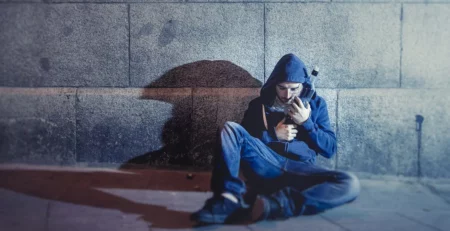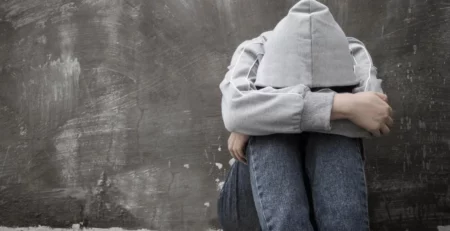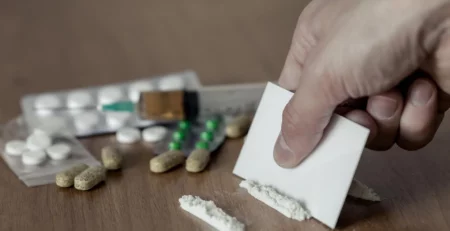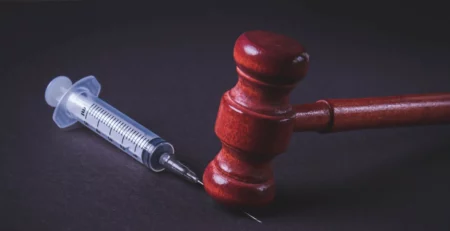15 Signs of Repressed Childhood Trauma in Adults
Identifying Adverse Childhood Experiences and Getting Support
What are the signs of repressed childhood trauma in adults? If you suspect that you or a loved one experienced childhood trauma that has led to mental health disorders in adulthood, it is time to deal with those traumatic memories. Once you confront the repressed memories under the care of licensed, professional help, you can learn to manage them and have healthy adult relationships.
At Icarus Behavioral Health in Las Vegas, Nevada, we have helped many people like you or your loved one. Our expertise in helping people face and learn to cope with the causes of childhood trauma sets us apart. Many have entrusted us, the Icarus team, to help heal mental illness; we can also help you change your relationship with your unresolved childhood trauma.
Please keep reading for the signs of repressed childhood trauma in adults and how we help work through adverse childhood experiences.
Get Effective Trauma Treatment Options – Call Now!
What Causes Repressed Trauma?
People repress bad memories as a defense mechanism. It’s a way to protect themselves from the emotional pain associated with traumatic experiences. This process means they start hiding these memories deep within the brain, away from their everyday consciousness.
The brain’s ability to repress those memories helps trauma survivors stop reliving the trauma. As a result, the repressed memories allow them to function in daily life without being overwhelmed by the traumatic event.
Later in life, this coping mechanism can lead to numerous mental health disorders. These can include post-traumatic stress disorder (PTSD), anxiety or panic attacks, chronic depression, and emotional disorders.
5 Traumatic Events That Can Cause Unresolved Childhood Trauma

Here are the top five causes of repressed childhood trauma in adults, according to our past clients:
1) Childhood Abuse Can Lead to Repressed Childhood Trauma
Child abuse is the most common cause of mental illnesses associated with trauma. Children who are hurt by adults they once trusted are prone to this. The abuses they once faced include:
- Emotional abuse
- Child sexual abuse
- Physical abuse
- Persistent verbal abuse
Children who deal with these situations will push the events to the deepest regions of their brain. In early childhood, trauma survivors don’t have any other coping tools to deal with the aftermath of the abuse.
2) Witnessing Domestic Violence Can Lead to Childhood Trauma in Adults
Many say that children are like a sponge, soaking up every detail. It’s true. So, watching parents or caregivers hurt or harm each other creates chaos and intense fear in young children. Watching parents or other adults engage in physical or sexual violence can impact a person’s life, even in adulthood.
3) Physical or Sexual Violence Can Cause Mental Health Problems
Another traumatic event that can have long-reaching impacts on children is surviving physical or sexual abuse. Those who survive sexual abuse or violence as a child have an increased risk of unhealthy sexual behaviors and healthy relationships as an adult.
4) Severe Physical Illness or Injury Can Cause Unresolved Trauma
A child who survives a severe or life-threatening physical illness or injury can often carry childhood trauma. The repressed childhood trauma is more likely in those who experienced many treatments or hospital stays. A child’s developing brain can not grasp the unfairness of this experience and will often repress it.
5) Losing a Parent at a Young Age
Those who lose a parent or primary caregiver at a young age are also more likely to have repressed trauma. Loss can refer to the death of a parent. However, it can also mean a long absence (such as military family members) or abandonment.
Icarus Helped Lin Process the Most Extreme Signs of Repressed Childhood Trauma

Tam, a man in his late fifties, arrived at Icarus Behavioral Health for recovery on a referral by a hospital. He was in his mid-fifties and had survived more trauma than most could imagine. At just four years old, he witnessed his home village raided by the Viet Cong; his mother and grandparents perished in the attack. The young boy watched in horror at a display of physical abuse and bloodshed that most will thankfully never witness. His aunt survived. She took Tam and her own children into the jungles, walking ten hours to get to the closest humanitarian workers.
Tam’s aunt regretfully turned over his care to the volunteers. Relief workers found him a sponsor family and got him a sponsor family in the United States. Tam forgot about those early days over the next years. His American family was kind and provided him with an excellent education. They described him as quiet, intelligent, and focused. But inside, Tam felt constantly fearful. His “focus” was hypervigilance—a distorted feeling that someone was out to get him that he could never explain.
Clear Signs of Childhood Trauma Often Stretch into Adulthood
As an adult, Tam could not connect with others. He found success in his professional life despite trauma, but he had no partner with whom to share his successes. In his late 30s, Tam started having nightmares that interrupted his sleep and left him exhausted. He kept up with his busy career but lost friendships due to his repressed memories, which left him unable to connect with people.
Tam continued to lead a life so successful on the one hand and so lonely on the other that he grew into deep, chronic depression. A few days before coming to Icarus for inpatient care for his mental wellness, Tam had attempted to end his life.
Our team knew that the series of events leading Tam to the United States had caused unresolved Complex Post Traumatic Stress Disorder, C-PTSD. He spent 30 days at Icarus in intensive, evidence-based programming to sort out the truth from false memories that he had buried away due to the trauma. In recovery, Tam started to accept his highly distressing childhood trauma and is getting stronger every day.
Fifteen Proven Signs of Repressed Childhood Trauma in Adults

How can you tell if you have repressed childhood trauma? Here are some potentially traumatic events to know:
1) Depression or Other Mental Health Conditions in Adulthood
Many who carry repressed childhood trauma develop mental health disorders. Most commonly, our clients struggle with depression or anxiety attacks. However, it can also mean PTSD, eating disorders, and substance abuse.
2) Chronic Stress Can Come from Childhood Trauma
Chronic stress coming from repressed childhood memories can cause numerous issues in adulthood. Stress can lead to cardiovascular disorders, chronic pain, lower immune function, and other chronic health problems.
3) Flashbacks or Nightmares Often Result From Adverse Childhood Experiences
Traumatic experiences can lead to specific symptoms like flashbacks and nightmares. The painful experience surfaces in these intrusive thoughts and feelings.
Traumatic stress studies at Yale University found that the brain activity that can trigger traumatic memories differs from the activity of recalling neutral or sad experiences. This brain activity style helps explain why these memories can lead to intense flashbacks and nightmares.
4) Disassociative Episodes or Disassociative Amnesia
A dissociative episode creates a disconnection or separation from reality. Clients have often explained this as feeling detached from their thoughts or identity. This coping tool helps them process extreme stress or trauma.
Dissociative amnesia is a subset of this. It’s an inability to recall important personal information, typically related to traumatic events. The forgetfulness of dissociative amnesia is usually too extensive to be explained by ordinary memory lapses.
5) Substance Abuse Connects to Childhood Traumatic Events
Some clients come to Icarus with a dual diagnosis of substance abuse and post-traumatic stress disorder or complex PTSD that needs treatment to improve. They often don’t realize it, but they turn to drinking alcohol or abusing drugs to dull the pain of a traumatic experience.
6) Unable to Form Healthy Relationships
Many living with the long-term consequences of repressed childhood trauma have unhealthy relationships. That’s because past physical or emotional abuse has caused them to develop trust issues. They also frequently have a lack of emotional regulation. The difficulty regulating emotions leads to roller coaster relationships.
7) Fear of Abandonment Can Come from the Most Painful Childhood Memories
A lack of emotional support as a child may cause an intense fear of being left alone or abandoned. As an adult, it can mean clingy, co-dependent behavior due to insecure attachment styles.
For example, the person may make persistent and problematic claims or accusations that their partner will leave, even when that’s false.
8) Mood Swings and Strong, Unexplained Reactions

Repressing memories can cause intense mood swings and childish reactions to normal stressful situations. The past trauma stays with them, continuously causing chaos in their lives in ways that are hard to explain to those without CPTSD.
For instance, a person reminds a trauma survivor they’re late for an appointment. Even a well-intended, helpful reminder can be taken as criticism or an accusation and cause an emotional blowup.
9) A Traumatic Experience May Mean Black-and-White Thinking
Black-and-white thinking is a cognitive distortion. Due to their repressed emotions, the clients see situations in either/or terms. This thought process can cause emotional distress and hold people back from forming healthy relationships.
10) Low Self-Esteem May Result from Emotional Abuse as a Child
One of the most frequently noted signs of repressed memories that our therapists notice is low self-esteem in clients with repressed childhood memories. These clients often grew up lacking a safe and supportive environment. In the worst cases, they had parents who engaged in emotional or physical abuse. Because of their low self-esteem, they feel unworthy or inadequate.
11) Emotional Numbness and Early Childhood Trauma
Some dealing with the impact of repressed childhood trauma express emotional numbness. “Numbing” is a shield or protective mechanism trauma survivors may develop. Clients explain it as feeling unable to feel or express their feelings. It can be very isolating.
Confidential Trauma and PTSD Assessment – Call Now!
12) Hypervigilance in Those Who Have Experienced Childhood Trauma
Those who live with repressed memories often develop hypervigilance. They explain to our therapists that they feel constantly “on edge.” They stay alert for perceived threats, even when none exist.
13) Memory Loss and Trauma Survivors
Some have extreme difficulty recalling important details about the traumatic event. This defense mechanism is one of the things that makes treating repressed childhood trauma so challenging and explains the need for help from a mental health professional.
14) Eating Disorders and Repressed Childhood Trauma in Adults
Our therapists often discover that clients with eating disorders have had struggles with repressed childhood trauma. Overeating, binge eating, and undereating behaviors are their way of exerting control in the emotional brain.
15) Fatigue From Childhood Abuse Can Remain in Adulthood
Those who have not recovered memories from childhood trauma and dealt with them often express fatigue. They have a general sense of feeling poorly. This can come from a life of living with the signs of repressed childhood trauma in adults.
Take Our Childhood Trauma Self-Assessment

Based on the factors above, we have developed a childhood trauma risk assessment. For every “true” answer, add one point. The key that reveals the likelihood that you have repressed childhood trauma is at the bottom. This tool is not intended as a diagnosis but as a self-reflection.
Please feel free to connect with us if you need a full assessment.
The Healing Process for Repressed Childhood Trauma
Healing repressed childhood trauma is a delicate process. Our licensed counselors and therapists use several therapeutic approaches to help clients resolve repressed memories. Effective treatment can reduce psychological and emotional impacts and reclaim your mental well-being.
Prolonged Exposure Therapy for Better Emotional Regulation
Prolonged exposure therapy (PET) is a form of cognitive-behavioral therapy. It helps our clients process and lessen the impact of trauma. This therapy involves repeatedly exposing them to thoughts or situations related to the trauma in a controlled environment.
PET helps the person confront and reduce the fear associated with these memories. Over time, this repeated exposure can help decrease the emotional response to trauma triggers. As a result, clients learn to process their experiences more healthily, have fewer mood swings, and learn to regulate emotions better.
Cognitive Processing Theory for Challenging False Memories or Beliefs
Cognitive processing therapy (CPT) is another effective approach for treating repressed memories. This theory focuses on identifying and challenging the distorted beliefs and thoughts that arise from traumatic experiences. During CPT, clients work with a therapist to understand how the trauma has affected their thinking patterns. Once they understand this, they can develop new, more adaptive ways of thinking. This process helps reframe their understanding of the trauma and reduces its negative impact on their daily lives.
EMDR for Recovery From Dissociative Episodes
Dissociative episodes, common among individuals with repressed childhood trauma, bring about feelings of disconnection from oneself or one’s surroundings. These episodes can be addressed through therapeutic techniques that aim to increase awareness and grounding in the present moment.
Mindfulness practices, grounding exercises, and specific therapies like Eye Movement Desensitization and Reprocessing (EMDR) can help individuals manage dissociative symptoms. EMDR uses bilateral stimulation to help people process and integrate traumatic memories, reducing the frequency and intensity of dissociative episodes.
Our Integrative Approaches to Healing at Icarus

Recovery from repressed childhood trauma often requires a comprehensive, integrative approach that combines multiple therapeutic modalities. Along with PET and CPT, therapies such as EMDR, somatic experiencing, and trauma-focused cognitive-behavioral therapy (TF-CBT) can also help you.
These therapies work together to address the complex nature of trauma, helping individuals to process and integrate their traumatic memories, reduce symptoms, and build resilience.
Establishing Healthy, Strong Support Systems
A final – but still incredibly important – part of healing from repressed childhood trauma is having a strong support system. Those healing need help from their most trusted family members, friends, support groups, and professional therapists.
A supportive environment provides the safety and encouragement needed for individuals to confront and work through their traumatic memories.
Up To 100% of Rehab Costs Covered By Insurance – Call Now!
Call Icarus Nevada and Get Support for Recovery from Trauma
Are you ready to start recovery and restore your sense of peace and well-being? Icarus offers full-service mental health services, including inpatient and outpatient care and evidence-based therapies. We accept most group and private health insurance plans as well as self-pay clients.
We are here to help you at every step of the recovery process, and call calls are kept strictly confidential. Please contact us now to get support today!











